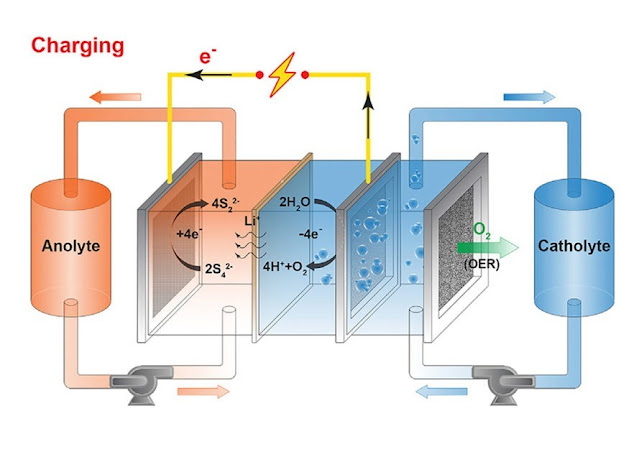Acute Ischemic Stroke (AIS) Market is Anticipated to Witness High Growth Owing to Increasing Geriatric Population
.jpg) |
| Acute Ischemic Stroke (AIS) Market |
Acute ischemic stroke (AIS) refers to a medical condition where blood supply gets disrupted to a part of the brain, thereby blocking delivery of oxygen and nutrients to brain tissues. Common symptoms associated with AIS include sudden numbness or weakness, especially on one side of the body, confusion, trouble speaking or understanding speech, difficulty seeing with one or both eyes, trouble walking, dizziness or loss of balance or coordination. The condition is often triggered due to various causes such as formation of blood clots, plaque buildup in arteries leading to blockage, or rupture of blood vessels in the brain. Rising prevalence of cardiovascular diseases, growing cases of strokes among young adults, surging geriatric population worldwide which is highly susceptible to AIS, and favorable reimbursement policies are some key factors driving demand for treatment of AIS.
The Global Acute Ischemic Stroke (AIS) Market is estimated to be valued at US$ 10612.22 Bn in 2024 and is expected to exhibit a CAGR of 18.% over the forecast period 2024 To 2031.
Key Takeaways
Key players operating in the Acute Ischemic Stroke (AIS) Market are F.
Hoffmann-La Roche AG, Boehringer Ingelheim, Bayer AG, Pfizer Inc., Biogen,
Daiichi Sankyo, Bristol-Myers Squibb, Johnson & Johnson, AstraZeneca,
SanBio and Athersys Inc. Majority of these players are involved in development
and launch of innovative drugs and therapies for treatment of acute ischemic
stroke. Some notable drugs available in market include tissue plasminogen
activator (tPA), antiplatelet drugs, Anticoagulants, Neuroprotective drugs etc.
The key opportunities in the Acute
Ischemic Stroke (Ais) Market include increase in acquisitions and
collaborations between pharmaceutical companies and biotech startups, growing
focus on development of biosimilars and generic drugs, and emergence of novel
drug delivery mechanisms such as intra-arterial thrombolysis. Further,
governments across various regions are undertaking initiatives and awareness
programs to educate people about early symptoms of stroke and benefits of
emergency care in improving functional outcomes.
Major players in the AIS market are emphasizing on global expansion through
geographical extensions and strategic partnerships. For instance, F.
Hoffmann-La Roche AG provides stroke care solutions across developed markets of
North America and Europe as well as emerging economies of Asia Pacific and
Latin America. Similarly, Johnson & Johnson and Bristol-Myers Squibb have
increased their international footprint for commercialization of products
indicated for AIS treatment.
Market Drivers
Surging Geriatric Population
The global geriatric population, defined as people aged 65 years or older, is
growing exponentially. As per WHO, there were around 703 million people aged 65
years or above globally in 2019 which is projected to reach 1.5 billion by
2050. Older individuals are at higher risk of developing atherosclerosis, high
blood pressure and diabetes - key risk factors of AIS. Moreover, aging reduces
efficacy of the brain's circulatory system making elderly susceptible to
reduced blood flow and blockages. Thus, rising pool of elderly population
worldwide is a major driver of acute ischemic stroke market growth.
Market Restraints
Stringent Regulatory Framework
Pharmaceutical regulations for approval of new drug entities and therapies for
treatment of AIS are quite stringent given associated risks. Drugs recommended
for use within narrow therapeutic window post ischemic stroke event require
extensive clinical evaluation. Further, regulatory requirements for
biosimilarity and evaluation of long term patient outcomes add to testing
timelines and costs. This poses a major challenge for small companies and
startups to commercialize innovative therapies within short time thus
restraining market potential to a certain extent.
Segment
Analysis
The acute ischemic stroke market can be segmented based on drug type,
distribution channel, route of administration, and end use. Among drug type,
tissue plasminogen activator holds the dominating position as it is the only
approved therapy for AIS by FDA and recommended as the standard of care
treatment by guidelines. It is administered intravenously within 3 to 4.5 hours
of stroke onset to break down blood clots and restore blood flow to the brain.
Global Analysis
Regionally, North America dominates the global AIS market and is expected to
continue its dominance during the forecast period. Higher healthcare spending,
growing geriatric population, presence of key players, and well-established
healthcare infrastructure drive the North American market. However, Asia
Pacific region is projected to grow at the fastest CAGR during the forecast
period owing to rising public awareness about stroke, expanding private
healthcare sector, and increasing healthcare spending in emerging Asian
countries like China and India.
Get more insights on – Acute
Ischemic Stroke (Ais) Market
About Author:
Ravina Pandya, Content Writer, has a strong foothold in the market research
industry. She specializes in writing well-researched articles from different
industries, including food and beverages, information and technology,
healthcare, chemical and materials, etc. (https://www.linkedin.com/in/ravina-pandya-1a3984191)



Comments
Post a Comment